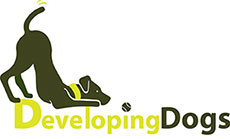“Dog training is an art, not a science.”
How many times have you heard (or read) that statement, usually made by someone who disagrees with the latest research or whose own beliefs interfere with their ability to be objective about differing view points. And that’s fine; dogs, like people, are individuals. There will always be dogs who haven’t read the journal and who don’t conform to the statistically significant results. Science deals with findings at a population (or at least a group) level, not on a case by case basis. The skill of a dog trainer or behaviourist is to apply the appropriate techniques for the individual dog, or family, in front of them.
The last few weeks have been a fantastic time to be interested in canine science. First there was SPARCS 2014 Conference. Three days of great speakers and sharing of research, made freely available to watch on-line during the live stream. And then, the Canine Science Forum, this year hosted in the UK by the University of Lincoln. A full week of dog (and cat) science including public lectures, posters and presentation of the latest projects and research in the canine world.
Science should not shy away from controversies. There were presentations across both conferences which challenged beliefs, presented opposing findings and made for long and detailed conversations during the coffee breaks.
Nor should science be taken at face value; just because a piece of research has made it through peer review in to a journal does not mean it cannot be challenged. There are always ways to improve methodology, statistical analysis, or to present results and discussions with alternative explanations.
Science can also be wrong, misinterpreted or present conflicting results. That’s the beauty of science; that it contains mechanisms by which our knowledge is challenged, increased and confirmed or changed as we refine the questions and ask them in different ways. As I have said before, I don’t want to be doing the same things in 10 years that I’m doing now. Things can always be improved as our knowledge is improved.
If science can be wrong, why should you care if your dog trainer keeps up to date with the latest research or treats the unsubstantiated claims of some training procedures or accessories with a degree of scepticism? The plural of anecdote is not evidence; just because something appears to have worked for a more than one dog does not mean it will work for all dogs. Appropriate research, which takes in to account any possible confounding factors, may help determine the likelihood of success at population level. Anecdotes can provide ideas and areas for further research; an individual case study can be a valuable first step in a new direction.
There are excellent trainers from whom we can all learn a lot, who don’t have qualifications or who have never read a scientific paper in their lives. They may have learned through their own trial and error what works; or have taken an idea they learned from someone else and refined it or improved it in their own training. Part of what makes them excellent trainers, along with their great people and dog skills, is that they have not stood still.
And this is why you should care about science. Science does not stand still; science helps drive development, change and improvements. Science can help all of us become better trainers and understand our dogs and their needs. There may be some blind alleys along the way, but generally progress is made. And that progress results in better welfare for your dogs and improved well-being for you.
What to know more about experiments that try to understand how dogs view the world and make decisions? Bring your dog on our Canine Science workshop: The Dog Particle. Now booking for 15th February 2015.
Sian Ryan, MSc
Developing Dogs


Comments are closed.